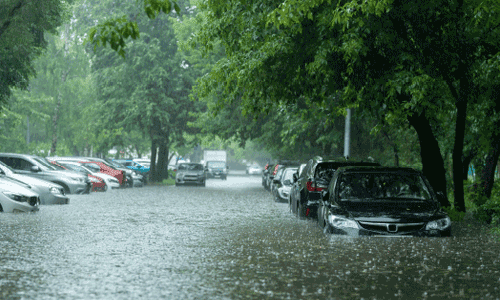Plugging into the Unplugged: Shaping a Balanced Digital Future in UAE
As we traverse the digital highway with our children and adolescents, a pertinent question echoes through the sleek skyscrapers:
“Are our young ones becoming entangled in the inescapable web of digital obsession?”
This concern may appear small, but it's like a small stone causing ripples across a calm pond. It's certainly easy to ignore — until the ripples start impacting everyone.
Hanan Ezzeldin, the founder and CEO of The Family Hub, highlights the issue. She says that “Teenagers are spending 6 to 12 hours daily on social media outside school hours. The sleep deprivation resulting from this can be as harmful as drug addiction.”
This not-so-silent epidemic is raising alarm bells, and it's time for us, the adults, to wake up and help our children. We need to ensure that they enjoy the digital world while also taking care of their health and well-being.
Breaking the Illusion of Digital Gratification
“In a world where instant gratification is often a swipe or a click away, we need to guide our children to find fulfillment beyond the digital realm," says Ezzeldin.
In today's fast-paced digital world, it's easy to get things instantly. With just a click or a swipe, we can watch a movie, order food, or connect with a friend. But is everything meant to be this quick?
Hanan Ezzeldin says we need to teach our children that life is more than these quick, digital wins.
Take, for example, Ahmed, a teenager who loves to share his drawings online. He gets thrilled when his work quickly earns likes and comments. However, he also feels disappointed if he doesn't get the instant response that he was hoping for.
This is where we, the parents and adults, should step in. We should teach Ahmed and children like him that real-life rewards need time, hard work, and patience. Getting better at drawing won't happen overnight, and that's okay. The journey and effort are just as important as the outcome.
Ezzeldin suggests a great way to help our children - co-viewing. This means watching or exploring digital content together with them. For instance, we could watch drawing tutorials with Ahmed, discuss the techniques, and appreciate the effort that artists put into their work. This shared time can help our children see beyond the instant likes and teach them the value of time, effort, and patience in achieving real-life satisfaction.
Modelling a New Reality: The Imperative Role of Parents
Ezzeldin suggests, "Even if we share something that we should not have, we must talk about it, own up, and admit that we made a mistake and we’re deleting it."
Imagine this scenario: you're a parent who loves sharing about your day on social media. But one day, you post something that you regret. Maybe it's a picture that you shouldn't have shared or a comment that came off as unkind. What do you do?
Hanan Ezzeldin, the founder of The Family Hub, has some advice. She says we should admit our mistake, talk about it, and then delete the post. This might seem tough, but it's a crucial lesson for our children.
For instance, let's say you've shared a picture of a family gathering, but you forgot to ask for everyone's permission. When you realise your mistake, sit down with your child. Explain that it's respectful to ask for consent before posting pictures of others. Apologize and let them see you deleting the post.
Children learn more by watching us than by listening to lectures. Our actions, indeed, speak louder than words, and this applies to our online actions too. By admitting our mistakes openly, we teach them a valuable lesson about digital responsibility.
Remember, no one is perfect. Even in our digital lives, it's better to learn from our mistakes than to pretend that we never make any. As parents, we can turn our digital errors into teaching moments, building an atmosphere of trust, honesty, and responsibility.
Shaping Tomorrow’s Digital Citizens: Making Online Safety a School Subject
Ezzeldin asserts, "There should be a proper curriculum of social media safety and character building for kids.”
As our educational systems increasingly adopt digital means, our children are spending a significant portion of their day in the digital world. With this shift comes the necessity to equip our children with the knowledge and tools to navigate this realm safely.
Think about a student who uses online platforms for his schoolwork. While he is learning math or science online, he is also exposed to other things on the internet.
This is where Ezzeldin's idea comes in. Schools should teach students how to be safe and smart online. For instance, children should learn how to tell if a website or news story is reliable or not, what to do if someone bullies them online, and more. They should also understand that they need to balance their online activities with their offline life.
By including these lessons in the school curriculum, we can prepare our children to be responsible digital citizens. This way, they can make the most of the internet while staying safe and maintaining good character, both online and offline.
Creating a Balanced Digital Ecosystem: A Collective Endeavor
When it comes to keeping children safe online, we all have a part to play. More than just about parents or teachers, it’s also about the websites and apps that our children use. This point is highlighted by Kevin Morgan, who works at TikTok in Europe, Middle East & Africa.
Let's consider the example of Aisha, a 12-year-old who loves to watch videos on TikTok. It's certainly fun and entertaining, but not all content on TikTok might be suitable for her age.
For this reason, Morgan talks about the importance of 'content classification', which means sorting videos into different categories based on who should watch them. For instance, there can be videos that are suitable for all ages, while some are only for older teenagers or adults.
By classifying content like this, such online platforms can make sure that Aisha and kids like her only see videos that are right for their age. This is a vital step towards creating a safer online environment and helping protect the mental well-being of our children. So in our digital world, it's not just us who need to look out for our kids but the digital platforms that they use as well.
Unveiling a New Dawn in the Digital Age
Addressing the challenge of digital obsession among our youth is daunting but far from impossible. It requires a paradigm shift in our understanding and use of technology. Parents, educators, and policymakers must join hands to create a balanced digital future for our children.
As we step into this new age, let's recall Ezzeldin's words: "We are the first generation of digital parenting, and our biggest role is to educate our kids and let them make mistakes, and let us be there when mistakes happen."
Our task is to guide our children, to be there when they stumble, and to create an environment that nurtures a healthy digital lifestyle. The journey may be arduous, but with collective effort, we will strive towards a balanced digital future in the UAE.
Written By Nupur Jain
Policybazaar UAE – Helping you navigate the wilderness of the insurance world!
Account Types

- Latest News & Update

.png)










